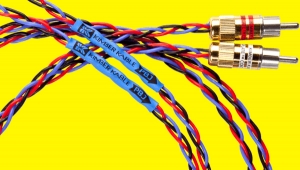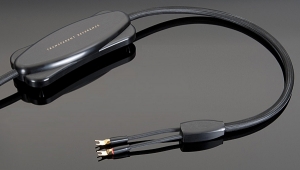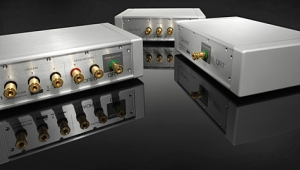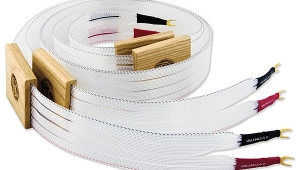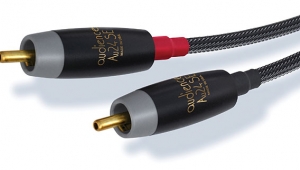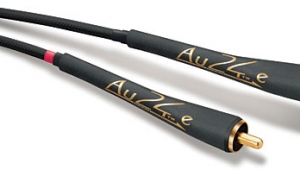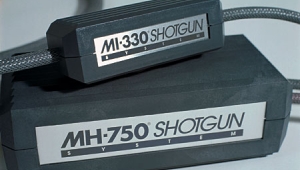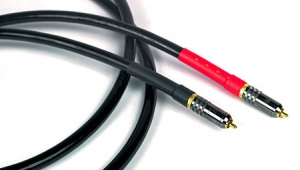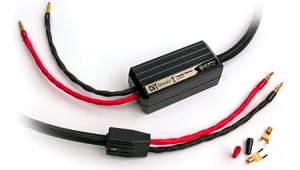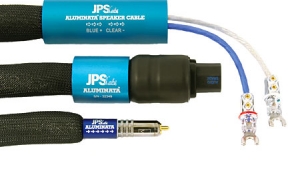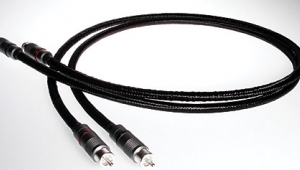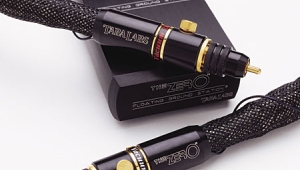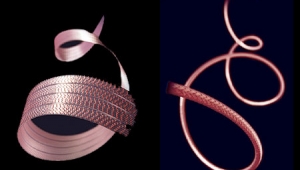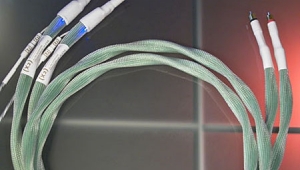| Columns Retired Columns & Blogs |
Harmonic Technology interconnect & speaker cable
My review of the Audio Research VTM200 monoblock power amplifier elsewhere in this issue drove it home to me big time: Cables are important, and even more important is getting good cable advice from someone who knows and understands the gear you're using.
Jonathan Scull put me in touch with a number of cable manufacturers who were happy to send me samples, and boxes began arriving about a week after I put the amps in the system. I had spoken with Harmonic Technology president Jim Wang, who offered to send a 20' pair of balanced Pro-Silway II interconnects, a 1.5m pair to run between my processor and preamp, and an 8' pair of Pro-9 speaker cables. I was more interested in putting some good interconnects between the amp and preamp than in getting involved with more speaker cables, but I agreed to give them a listen.
Wang wasn't finished. He suggested that I listen as well to the company's Magic Woofer speaker cables: separate runs for plus and ground on each channel. I rolled my eyes as he told me that a number of his dealers felt that the Magic was the cable to use with Audio Research tube amps. "Okay, okay, I'll give 'em a shot."
With Harmonic Technology Pro-Silway II interconnect in place of the old cable, there was a significant change: The bass firmed up and rejoined the music, the midrange took on a richer, more full-bodied texture, and the top remained extended, detailed, and ultra-revealing, but not quite as bright.
Later, I inserted the Harmonic Technology Pro-9 speaker cables, and things improved even further in the same directions. Finally, I substituted Harmonic Tech's Magic Woofer speaker cables, which are intended for full-range use and for the woofer half of a bi-amped or biwired system.
The sound had grown more musically satisfying with each cable upgrade, but with the Magic Woofer cable, the system finally began to communicate the music's emotional center—though still not as effectively as the Hovland/Nu-Vista 300 combo had effortlessly the first time I heard it. It was as if a switch had been thrown. I know that sounds a bit dramatic, but it was unmistakable, and was reinforced when I tried another expensive set of interconnect/speaker cables, then one more "reasonably" priced. Neither of those sets was able to pull it all together as well as the Harmonic Tech cables—at least with the ARC VTM200s.
I have never heard so cable-dependent an amplifier. Perhaps the VTM200's sensitivity has to do with its claimed extended bandwidth of 200kHz, which indicates an output transformer of extremely high quality. But no doubt: with the Amati Homages and the Ayre K-1x, the VTM200 monoblocks sounded best with the Harmonic Technology Pro-Silway II/Magic Woofer combo. That's what I used for the review.
Cable Changes Everything
While the Harmonic Technology cables worked best with the Audio Research VTM200s, that doesn't mean they're the best cables I've ever heard, because I haven't heard them with any other amplifiers or associated gear. Nor does it mean that the other cables I was sent, which I've decided not to mention for now, are not as good. It could be that Harmonic Tech's Magic Woofer speaker cables or Pro-Silway II balanced interconnects rolled off the VTM200's top end or mucked up the midrange. I don't know, but I hope to find out by using the speaker cables with other amplifiers and trying the single-ended interconnects.
Harmonic Technology is a California company that was founded in 1998 to take advantage of an "amazing discovery in the field of metallurgy" that eliminates "crystalline barrier distortion." Their words. These "barriers," they claim, "cause outright distortion, modifying the signal and adding a grainy, harsh, or muffled sound, lacking in true detail...because the electron flow consists of very complex harmonically structured data packets, and the collision of these data packets with the crystalline barriers destroys the original signal's purity and coherence."
I wouldn't know. Harmonic Tech uses a patented "Single Crystal copper" in all of their cables. The Pro-Silway II I used is the top of their regular line, below the Magic line. What I find fascinating is that I did my listening without paying attention to the technology or the metals used. Lately, I've consistently favored copper/silver hybrid cables. The Pro-Silway II is a bi-metal hybrid of two filaments of 7N-pure (99.99997) silver and two filaments of copper. The braided outer shield is pure-silver-plated copper. Insulation is either Teflon tape or air-foamed PE (polyethylene with air bubbles as the main dielectric). The balanced or single-ended plugs are "NASA grade" (audiophiles in space?). A 1m balanced pair costs $439, or $399 single-ended; add $299 per additional stereo 1m pair. An 8' quadruple set (each + and - run per pair is a separate cable) of Magic Woofer speaker cables is $2000, with each additional 1' quad run costing $250 (with spade lugs or locking banana plugs).
- Log in or register to post comments
